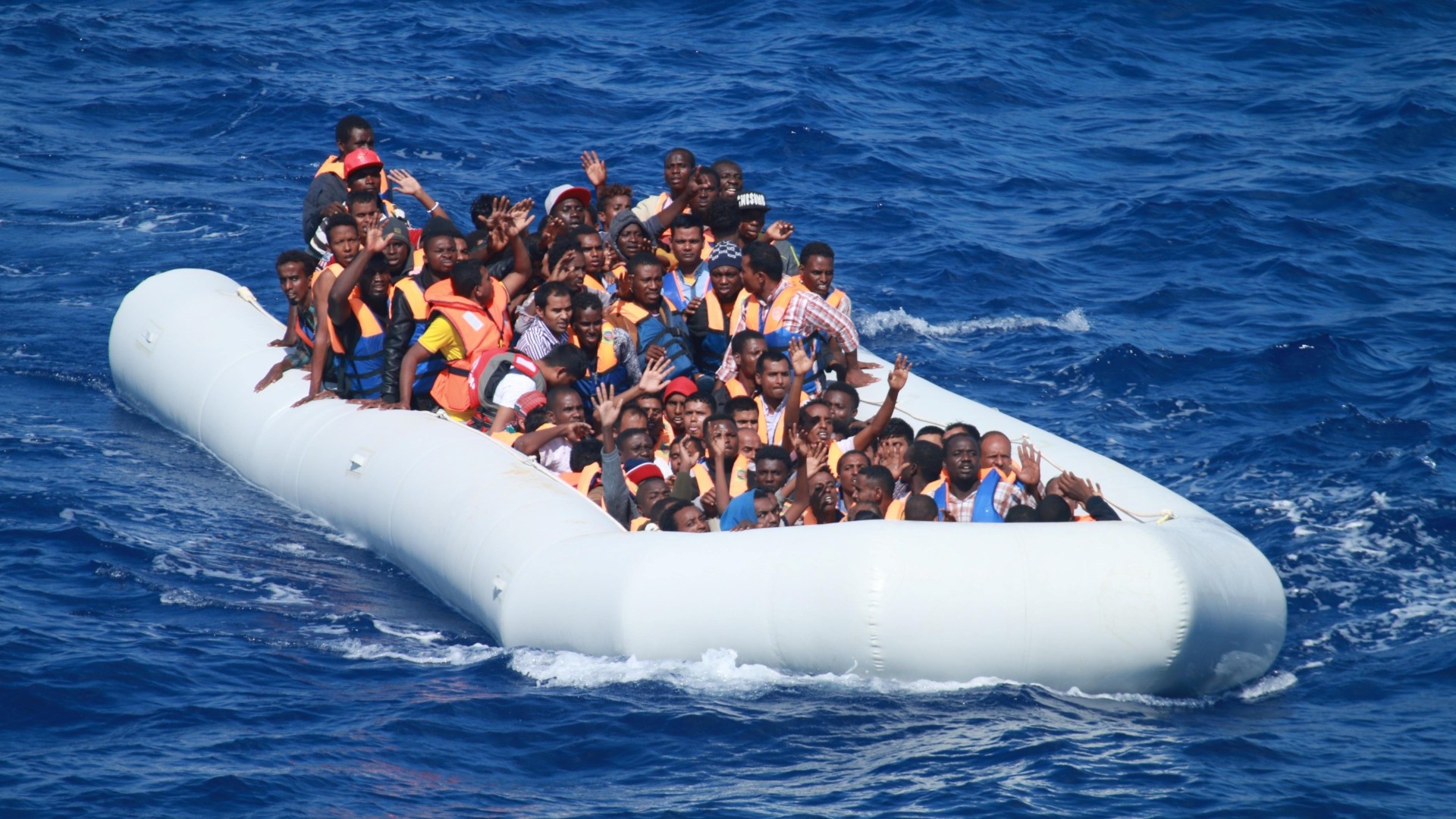Europe’s Asylum Seekers Are Someone Else’s Problem
Photo by Commander, U.S. Naval Forces Europe-Africa/U.S. 6th Fleet
The European Commission, the E.U.’s executive branch responsible for proposing new laws, has a plan for dealing with the continent’s unwanted refugee population. To boil it down: “out of sight, out of mind.” The Commission will seek to introduce rules that make it easier to transfer these people out of Europe to so-called “third countries”—that is, nations outside of the E.U. Obviously the proposal doesn’t actually use the word “people.” Imbuing asylum seekers with humanity tends to induce emotion into proceedings, so, for the sake of cold, hard, technocratic efficiency, “applicants” is the preferred term.
The proposal, submitted in May and intended to come into effect next year, subject to approval by the European Parliament and the Council of the European Union, aims to remove an obligation that an applicant can only be sent to a third country assuming that they have a genuine connection to that place. Whereas until this point, a connection might mean that this person had once lived in the third country in question, or that they had family there, it will soon come to mean, simply, that they passed through on their way towards Europe. It is, in other words, an arbitrary solution being proposed, tossed together for the sake of facilitating the increasingly xenophobic bluster of European leaders.
Human rights groups are alarmed by the proposal. Olivia Sundberg Diez, Amnesty International’s E.U. Advocate on Migration and Asylum, responded to the news by recommending that, rather than wasting time and resources on outsourcing its responsibilities, the E.U. should invest in its own asylum system to ensure it is capable of actually helping those within it. “These proposals are yet another cynical attempt to evade the E.U.’s refugee protection responsibilities, shifting them to countries with fewer resources and less capacity to offer lasting protection,” she said. “Sending people to countries to which they have no connection, no support and no prospects, or may have only briefly transited through, is not only chaotic and arbitrary, but also devastating on a human level.”
-

-

-

-

-

-

-

-

-

-

-

-

-

-

-

-

-

-

-

-

-

-

-

-

-

-

-

-

-

-

-

-

-

-

-

-

-

-

-

-

-

-

-

-

-

-

-

-

-

-

-

-

-

-

-

-

-

-

-

-

-

-

-

-

-

-

-

-

-

-

-

-

-

-

-

-

-

-

-

-

-

-

-

-

-

-

-

-

-

-

-

-

-

-

-

-

-

-

-

-

-

-

-

-

-

-

-

-












































































































